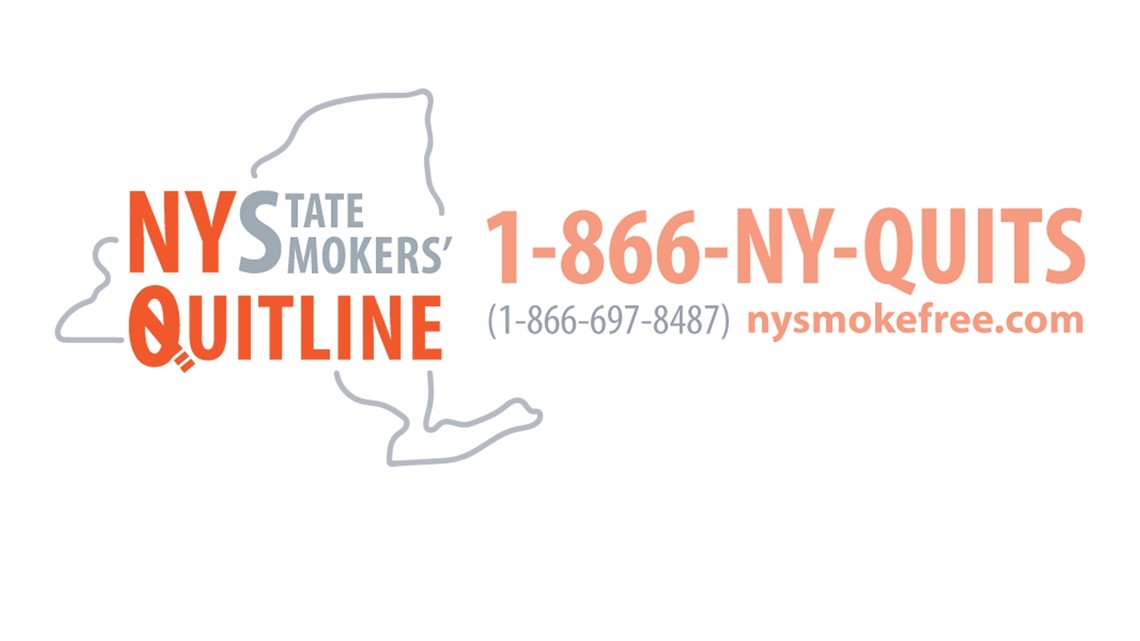NYS Quitline Investigates Trauma-Tobacco Connection

New resource guide and webinar promotes better understanding of trauma, information healthcare professionals’ treatment of nicotine addiction
- February 27 webinar explores trauma’s role in nicotine addiction and quit-attempts
- NY Quitline created resource guide to inform tobacco dependence treatment options
- Research suggests 90 percent of adults have experienced at least one form of trauma
BUFFALO, N.Y. – Feb. 18, 2025 – Even one traumatic event in someone’s lifetime can initiate use of tobacco* products and create challenges with overcoming addiction. Increased understanding of the underlying root causes of trauma and tobacco use can inform and improve treatment for recovery.
The New York State Quitline (NY Quitline), a free service through the New York State Department of Health, encourages clinicians and other healthcare professionals to better understand the role trauma plays in navigating quit-attempts and addiction recovery. Through an upcoming webinar and a new resource guide, the NY Quitline hopes those who treat tobacco dependence will incorporate greater empathy and supportive dialogue with patients.
On Thursday, Feb. 27 at 11 a.m. through Microsoft Teams, the NY Quitline will host an hour-long free webinar, titled, “A Practical Look at Addressing Tobacco Use in Relation to Trauma for Clinicians and Others.” Registration and additional details are available by visiting the NY Quitline’s Online News Room at https://www.nysmokefree.com/newsroom.
After the conclusion of the live webinar, all registrants will receive a copy of Trauma & Tobacco: A Practical Resource Guide. The NY Quitline will host this new resource on its website and incorporate best practices in its ongoing marketing and outreach efforts.
According to research estimates, nearly 90 percent of adults experience at least one traumatic event in their lifetime and may experience multiple forms of trauma even before entering adulthood. While identifying and navigating trauma can be complex, clinicians and other healthcare professionals can modify their interventions to provide more effective care for patients seeking to overcome nicotine addiction.
“Compassionate curiosity leads to greater healing,” said Youlim Song, the webinar’s featured presenter and a project manager for practice improvement and consulting with the National Council for Mental Wellbeing. “Healthcare professionals do not need to specifically screen for trauma in individuals to apply trauma-informed care.”
Patricia Bax, the NY Quitline’s marketing and outreach coordinator, is the lead author for the new resource guide and will present during the webinar. She believes the guide can inform treatment practices such as developing trust and creating a safe environment, as well as enhance healthcare organization protocols such as assessments, screening and policies.
“Chances are, we all know someone who has experienced some form of trauma,” Bax said. “We designed this guide to be a go-to resource which can directly improve patient outcomes.”
Anyone may contact the NY Quitline by calling 1-866-NY-QUITS (1-866-697-8487) seven days a week. They can also visit nysmokefree.com to connect with a specialist through an online chat, request a call-back or order free nicotine replacement therapy medications. The NY Quitline additionally offers a free texting program to quit smoking or vaping, by texting QUITNOW(English) or DÉJELO YA NY (Spanish) to 333888.
Traumatic events can prompt nicotine addiction and complicate quit-attempts; however, understanding the role of trauma can generate compassionate and effective care. The NY Quitline encourages all clinicians and healthcare professionals to incorporate a trauma-informed lens as part of patient treatment for nicotine addiction.
* The term tobacco throughout this press release refers to the use of manufactured, combustible commercial products and vape products – not the sacred, medicinal and traditional use of tobacco by Native American nations and other Indigenous groups.









